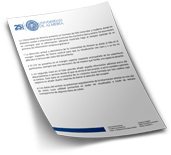Objectives and Competencies
{{pre.error[0].message}}
{{pre.error[0].message}}
Mathematics graduates will be able to formulate real-world problems in mathematical terms as well as those of other sciences and engineering, being able to analyse these formulations mathematically in order to solve them, using specialized software when required. The degree enables students to implement the techniques and tools required in the different Mathematics fields, to be able to work independently and in groups, to consolidate high-level reasoning skills, abstract thinking, constructive criticism and self-reflection. The degree also provides a solid grounding in other languages, English in this case, as it is the most used language in the Scientific and business worlds; the English level currently required by the University of Almeria is B1 of the Common European Framework.
The general objectives of this Bachelor's Degree, according to the White Paper on Mathematics Degrees, are as follows:
The specific objectives of the Bachelor's Degree in Mathematics of the University of Almeria are:
Competencies are understood to be the identifiable and assessable set of interconnected knowledge, attitudes, values, abilities and skills, which will allow the students to exercise their professional activity according to the requirements and standards used in the corresponding occupational area.
All University of Almeria degrees explicitly include three types of competencies:
The basic competencies for all bachelor’s degrees are defined in Royal Decree 1393/2007, of 29 October, and are aimed at the student acquiring general training in one or more disciplines, oriented towards preparing them to carry out professional activities. They will be progressively adapted and as established by the current Royal Decree 822/2021, of 28 September, which establishes the organization of university education and the quality assurance procedure.
|
To possess and understand knowledge |
That students have demonstrated they possess and comprehend knowledge in an area of study that is part of the foundation of general secondary education, and is usually found at a level that, although supported in advanced textbooks, also includes some aspects that involve knowledge from the vanguard of the field of study. |
|
Knowledge application (CB2) |
That students should be able to apply their knowledge to their work or vocation in a professional way and possess the skills that are often demonstrated through developing and defending arguments and solving problems within their area of study. |
|
Ability to make judgements (CB3) |
That students have the ability to collect and interpret the relevant data (usually within their area of study) to make judgements, including reflections on relevant social, scientific or ethical issues. |
|
Capacity to communicate and social aptitude (CB4) |
That students are able to convey information, ideas, problems and solutions to both specialized and non-specialized audiences. |
|
Learning skills (CB5) |
That students have developed the learning skills necessary to undertake further studies with a high degree of autonomy. |
The cross-curricular competencies of the University of Almeria, approved by the Governing Council on 17 June 2008, are as follows:
|
Basic knowledge of the profession (UAL1) |
Knowledge, skills and attitudes that enable the understanding of new theories, interpretations, methods and techniques within the different disciplinary fields, conducive to the optimal fulfilment of professional requirements. |
| Ability to use ICT (UAL2) | Using Information and Communications Techniques (ICTs) as a tool to express and communicate, to access information sources, as a means of filing data and documents, for presentation tasks, for learning, research and cooperative work. |
| Ability to solve problems (UAL3) | The ability to identify, analyse, and define significant elements that constitute a problem in order to solve it rigorously. |
| Oral and written communication in one's own language (UAL4) | To understand and express ideas, knowledge, problems and solutions clearly and opportunely to a wider, specialized or non-specialized audience (and feelings through words, adapting to the particular situation and audience to gain their understanding and endorsement). |
| The ability to be critical and self-critical (UAL5) |
This is the mental aptitude to question things and be interested in the bases on which ideas, actions and judgements are founded, both one’s own and those of others. |
| Teamwork (UAL6) | To integrate and collaborate actively with other people, areas and organizations to achieve common objectives, in both national and international contexts. |
| Knowledge of a second language (UAL7) | To understand and be understood, both verbally and in writing, using a language other than one's own. |
| Ethical commitment (UAL8) | The ability to think and act on principles of a universal nature that are based on the value of the individual and are directed toward them reaching their full potential. |
| Learning to work autonomously (UAL9) | The ability to design, manage, and execute a task by oneself. |
| Social competence and global citizenship (UAL10) | To respect fundamental rights and equality between men and women, human rights, the values of a peaceful and democratic culture, and environmental and cooperative development principles that promote ethical commitment in a global, intercultural, free and just society. |
The specific competencies provided by this degree are listed in the degree report.
